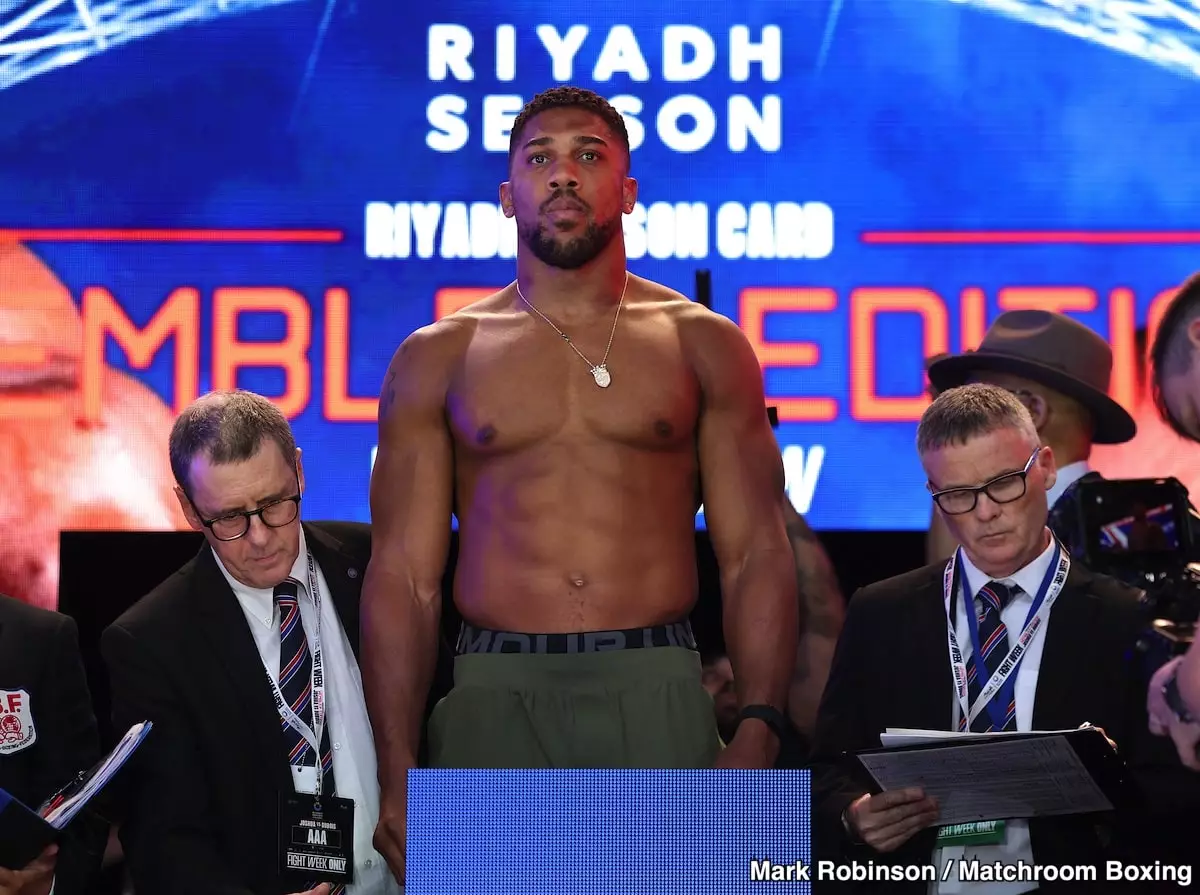The world of heavyweight boxing has always captivated fans with its heights of drama, intense rivalries, and the promise of electrifying matchups. Recently, the focus has shifted to the remarks made by Eddie Hearn, promoter for former champion Anthony Joshua, regarding the anticipated bout between Joshua and Tyson Fury. Hearn’s assertion that he “must deliver” this fight for the British public in 2025 raises various questions about the current state of these fighters and the boxing landscape in general.
The bout between Anthony Joshua and Tyson Fury has been a significant topic of discussion among boxing enthusiasts for several years now. Hearn’s insistence on making this fight a priority could be interpreted as a business decision, primarily aiming to capitalize on the nostalgia and public sentiment surrounding what is dubbed the ‘Battle of Britain.’ However, public opinion is mixed, and many die-hard fans argue that the rivalry may have lost its luster. Given Joshua’s recent record of 28-4, with 25 knockouts, and Fury’s 34-2-1—both fighters are now operating in a climate where their previous triumphs are overshadowed by questions surrounding their current abilities and mental fortitude.
Critics argue that the bout should be reconsidered for various reasons. Firstly, the fight’s potential draw may not match the fervor it would have garnered two years ago. Many fans are calling for a matchup between Fury and rising heavyweight Daniel Dubois instead. Such a matchup would allow Fury to regain his footing following his recent loss to unified heavyweight champion Oleksandr Usyk, thereby resetting the stakes in heavyweight boxing. The possibility of Joshua facing Dubois also looms large, presenting a dangerous scenario for Joshua who could find himself facing yet another loss and possibly heading into retirement, which would be a disappointing conclusion for a once-luminous career.
Fury’s response after his latest fight illustrates a complexity that complicates the foundation of his future engagements. Despite losing to Usyk in a closely contested match, where the scoring was unanimous in favor of his opponent at 116-112, it was evident that the defeat affected him. Hearn’s comments hint at Fury’s current mental state, suggesting a need for introspection before jumping back into action. Fury’s disappointment stems from a belief that he performed well enough to earn the victory, which fuels speculation about his willingness to fight again.
However, Hearn’s suggestion to Sky Sports about Joshua’s recent social media activity hints at a burgeoning ambition within Joshua to seek out the top-level matchups that define legacies. Joshua is notably cautious when it comes to calling out opponents directly, yet Hearn’s interpretation suggests a level of eagerness to take on the biggest names, particularly Fury. The complexities of these dynamics can be confusing, but they are indicative of a pressing need for clarity in the heavyweight division moving forward.
As boxing evolves, the demand for exciting and groundbreaking fights increases. The landscape of the heavyweight division is continuously shifting, creating openings for emerging fighters while traditional stars grapple with their legacies. While Hearn emphasizes the duality of Joshua’s pathway—revisiting Dubois and seeking Fury—the reality is that both matchups rely heavily on their respective performances moving forward.
Introducing lesser-known but capable fighters into the mix, like Martin Bakole, sparks debates about the future viability of these high-profile events. Boxing is not merely a numbers game; it thrives on stories, stakes, and the fighters’ willingness to push boundaries. Hearn’s focus on delivering these matchups connects deeply to the rhythm that boxing has cultivated throughout its long history.
Heavyweight boxing stands at a crucial juncture. The intertwined destinies of Anthony Joshua and Tyson Fury, under the watchful eye of Eddie Hearn, indicate that the future may contain thrilling ups and downs. Rather than merely seeing the Joshua-Fury clash as a past-due summer blockbuster, it is essential for stakeholders to appreciate the nuances in their narratives, current form, and the longing of fans for meaningful matchups. Whether it is through championship bouts or rejuvenated encounters, the journey ahead must be navigated with careful consideration of all context; because in the end, boxing is about more than just the fight—it’s about the story, the journey, and what lies ahead.

